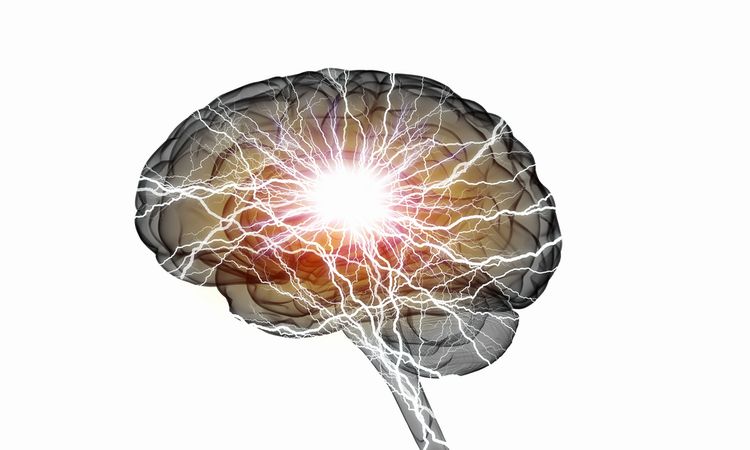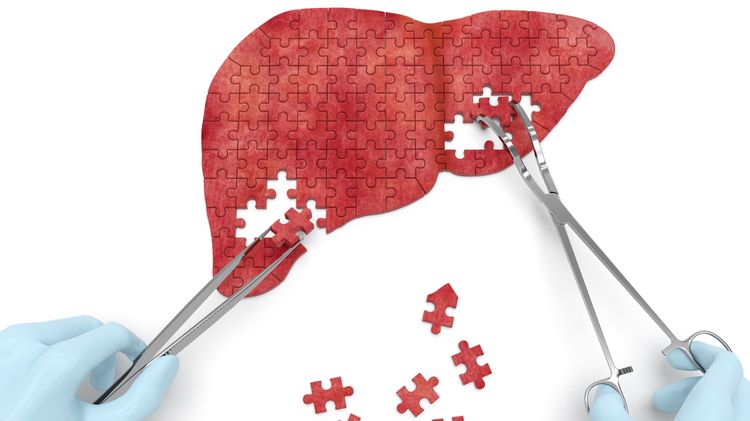9 Health Truths About Coffee

Over 100 million Americans will enjoy a cup of coffee today. Coffee naturally contains caffeine, a stimulant that affects the central nervous system. The alertness and stimulating effect of caffeine is what drives most people to drink coffee every day, but others may drink coffee just for the flavor or the ritual.
But is drinking coffee bad for you, as so many of us have been told? Or can it actually be a positive health addition?
Research is revealing that coffee may have some health benefits, although it isn’t suitable for absolutely everyone. Scientists and leading health experts have plenty to say about the world’s most popular beverage.
Chris Kresser, L.Ac, has three reasons for enjoying his daily cup of coffee. “I can say I drink coffee for three reasons: Number one, because it’s delicious and I love the smell and the ritual of it. The whole preparation that I go through is a ritual, and I really believe in the importance of those kinds of rituals. And I think we lack them in our culture.
Number two, coffee is associated with numerous health benefits in the scientific literature, and that may come as a surprise to some people listening. And number three, when I drink it, it doesn’t interfere with my sleep or HPA axis function.”

The World’s Favorite Beverage
After water, coffee is the most consumed beverage worldwide, and its trade value exceeds $10 billion. How are Americans drinking their coffee, and at what time of day?
- 54% of Americans over the age of 18 drink coffee every day.
- Americans drink an average of 3.1 cups of coffee per day.
- 35% of Americans drink coffee black, while 65% drink it with cream and sugar.
- 65% of Americans drink coffee with breakfast.
- 30% of Americans drink coffee between meals, and 5% of Americans drink coffee with meals other than breakfast.
- Coffee is the #1 source of antioxidants for most Americans.

How Coffee is Made
What you think of as a coffee bean is actually the fruit of the coffee tree. This bright red fruit is often harvested by hand once a year in coffee-growing countries (these include Brazil, the world’s largest coffee-producing nation, as well as Vietnam, Colombia, Indonesia, and India).
After harvest, the beans are dried, milled, graded, and sorted by size and weight. These beans, now referred to as “green coffee,” are then exported around the world.
Roasting transforms the green coffee into the whole or ground brown beans that you purchase to make coffee in your own home. Roasting, typically falling into one of four categories (light, medium, medium-dark, or dark) brings out the aroma and flavor of the coffee bean.
Scientists at the University of British Columbia have found that roasting coffee beans actually results in higher antioxidant activity. Here are nine evidence-based health truths about coffee to help you decide if coffee is a good or bad idea for you.

Truth #1: Coffee Has Proven Health Benefits
Dave Asprey knows a thing or two about coffee. The creator of Bulletproof Coffee and founder of the Bulletproof Diet keeps up-to-date with the latest research on the safety of coffee. “Coffee has received an undeserved reputation as being unhealthy, when in reality it improves brain function, scavenges free radicals, and decreases your risk of disease. It’s a rich source of polyphenols and antioxidants. The caffeine in coffee can increase memory and improve glucose tolerance, fat loss, and exercise performance.”
Several studies have looked at the relationship between coffee consumption and death from any cause. One meta-analysis of studies spanning over 50 years concluded that coffee doesn’t lead to an increased risk of mortality. The study authors concluded that coffee drinking was actually associated with a reduced risk of death from all causes, including cardiovascular disease.
Drinking coffee may especially extend the lives of women. The protective effects of coffee were more profound in women, bringing up to a 15% reduced risk of death compared to women who didn’t drink coffee.

Truth #2: Coffee May Protect the Brain
David Perlmutter, neurologist and author of Brain Maker, says that coffee is one of his recommendations for preventing Alzheimer’s and brain disease.
“I’m a big fan of coffee, and super thankful that it’s not only savory but brain-healthy as well. Not only does coffee activate our Nrf2 pathways, helping to fight off oxidative stress and protect against neurodegenerative diseases, but recent studies have found that high levels of coffee consumption can be associated with up to a 65% reduction in risk for dementia.”
Coffee may protect against Parkinson’s disease: Moderate doses of caffeinated coffee have been linked to a protective effect against Parkinson’s disease. One study found that one to three cups per day offered the best protection for women, but in men, higher caffeine levels tended to lower their risk.
Coffee may protect women from dementia: One study looked at the protective effect of caffeine on cognitive decline and found that dietary caffeine consumption was associated with a lower risk of dementia and cognitive decline in women. No significant association was found in men.
Coffee may positively affect mood: Caffeine causes changes to a variety of neurotransmitters in the brain. One way it accomplishes this is by blocking the binding of both adenosine and benzodiazepine receptor ligands. These neurotransmitters slow brain activity, so blocking their receptors lessens this effect. Caffeine users have reported improvement in cognitive function and mood in 23 studies.

Truth #3: Avoid Coffee Late in the Day
Caffeinated coffee may make it hard for you to sleep. Caffeine produces stimulating effects in the areas of the brain that control your sleep-wake cycle. Some people may be more sensitive to the effects of caffeine on sleep, and others may be more affected depending on when they consume the caffeine.
Caffeine consumed even six hours before bedtime significantly decreased sleep quality and quantity, and caffeine interrupted the napping of subjects who were sleep-deprived for one night compared to those who followed their regular nighttime sleep cycle. Middle-aged adults are more likely to experience the negative effects of caffeine on sleep, including a longer time falling asleep, shortened total sleep duration, and reduced sleep efficiency, compared to young adults.
According to Dr. Alan Christianson, middle-aged adults may be more negatively affected by caffeine because “specifically what happens is that it takes longer to move caffeine through our liver and out of our body as we age.” He notes that in your 40s, you’re only able to process about 100mg of caffeine per day. Any more than that creates a backlog that you then add to the next day, and so on.
One eight-ounce cup of coffee typically has 100mg of caffeine, so any more than that can lead to sleeplessness for middle-aged adults.

Truth #4: Coffee May Reduce Depression
Dr. Perlmutter not only recommends coffee to protect the brain from disease but also to safeguard it from depression. Dr. Perlmutter’s advice comes from one study that looked at over 50,000 women and found that caffeinated coffee consumption decreases the risk of developing depression.
In this same study, it was caffeinated coffee that decreased the risk of depression. Decaffeinated coffee wasn’t associated with a reduction in depression risk, and there was no association between caffeinated tea or soft drinks and depression.
Coffee has also been linked to a reduced risk of suicide. A ten-year study examined the relationship between coffee and caffeine consumption and the risk of suicide; the examination found a strong inverse association between coffee intake and suicide risk.
Caffeine works by stimulating the central nervous system, increasing the production of certain “feel-good” neurotransmitters in the brain, including serotonin, dopamine, and noradrenaline (a mild antidepressant). Theobromine is another compound in coffee that increases serotonin production, accounting for additional positive mood effects.

Truth #5: Coffee May Protect Your Liver
Liver disease can lead to cirrhosis, scarring, and loss of cells in the liver. Hepatitis B and C, as well as alcohol, are some of the biggest causes of liver cirrhosis, which can often lead to liver cancer.
However, coffee seems to protect against liver cirrhosis (and thus liver cancer as well). In one study, four cups of coffee per day reduced the risk of both alcoholic and nonalcoholic cirrhosis by up to 80%.
Caffeinated tea doesn’t have the same liver-protecting effects, suggesting that a compound in coffee is responsible for reducing the risk of liver cirrhosis and cancer.
Experimental studies have also shown that coffee consumption reduces the accumulation and deposit of fat and collagen in the liver. These studies also show that coffee promotes an increase in glutathione production, a critical part of your body’s detoxification process for both Phase I and Phase II detoxification. Without adequate levels of glutathione, your body can’t properly detoxify the liver, and toxins can accumulate.

Truth #6: Coffee Can Impact Blood Sugar
Coffee can help reduce the risk of diabetes, as well as decrease blood sugar in diabetics by lowering carbohydrate storage. On the flip side, the caffeine in coffee may reduce insulin sensitivity in some individuals.
One study showed that each additional daily cup of coffee can reduce your risk of diabetes by 7%. Four cups of coffee per day was associated with a 47% drop in risk. For people who already have diabetes, coffee may be beneficial in reducing blood sugar levels. The chlorogenic acid found in coffee is able to inhibit the production and release of glucose into the bloodstream.
Any potential blood sugar benefits from coffee may be in spite of, not because of, caffeine. In one study, daily caffeine intake reduced insulin sensitivity within 12 hours and for up to one week after administration.
Mark Sisson, author of The Primal Blueprint, recommends that you moderate your carb intake when drinking coffee, and then get up and move around a bit to counter any potential effects of caffeine on insulin. He doesn’t necessarily believe that caffeine’s response to insulin sensitivity is a bad thing, though.
“Caffeine increases adrenaline, which increases lipolysis—the liberation of fatty acids from body fat. The increased sense of energy you get from coffee is partly caused by the increased availability of energy in the form of free fatty acids,” says Sisson. The subsequent insulin sensitivity allows you to actually burn fat.

Truth #7: Coffee Can Burn Fat
Coffee is considered a thermogenic food—one that increases metabolism after it’s consumed. Coffee’s fat-burning properties are one of the reasons Dave Asprey recommends it. “Coffee is a potent thermogenic. It increases metabolic rate and stimulates movement. It also increases fat mobilization and oxidation, which promotes fat loss.”
Drinking a cup of caffeinated coffee can increase metabolism as much as 3 to 11 percent, according to one study. One particular compound found in coffee, chlorogenic acid, appears to have a significant effect on the body’s ability to absorb and utilize dietary glucose; this tends to result in reduced body fat and body mass.

If you’re looking for coffee to help with improving body composition, then you may want to make it part of your pre-workout routine. Dave Asprey also recommends having coffee before a workout to improve your physical performance and give you an edge over your opponents. “Caffeine is an ergogenic aid, meaning it increases power output. This is true for both aerobic and anaerobic exercise.”
A meta-analysis of 40 double-blind studies examined the effect of caffeine on exercise performance. Caffeine improved performances by 12%, with significant improvements seen for endurance exercises.
Mark Sisson attributes caffeine’s performance-improving properties to boosted endorphins. “If endorphins are high, exercise is more tolerable, even enjoyable. If caffeine can increase the runner’s high, it’s also going to make exercise more effective and more self-perpetuating.” Sisson also believes that the polyphenols found in coffee contribute to enhanced athletic performance.

Truth #8: Coffee Can Protect the Heart
Dr. Andrew Weil has been following the accumulating evidence of coffee’s effects on health, and he is most impressed by “the clear-cut evidence” that coffee isn’t harmful to cardiovascular health, and may even be beneficial.
Moderate coffee consumption has been associated with a reduced risk of stroke, the fifth leading cause of death each year.
The number of deaths from heart disease each year is even higher; heart disease is the leading cause of death for men and women.
One meta-analysis of 21 studies looking at the relationship between coffee consumption and cardiovascular health concluded that moderate coffee consumption was associated with a significantly lowered risk of coronary heart disease. Moderate coffee consumption was defined here as one to four cups per day.
That being said, people with existing heart conditions, including but not limited to arrhythmia, atrial fibrillation (A Fib), or ventricular hypertrophy should be careful when consuming caffeinated beverages.
Caffeine is a stimulant, and recommendations for safe levels of caffeine consumption can vary for those with heart conditions. Consuming caffeinated coffee should be done under the guidance of a healthcare professional if you have a history of any of these (or other) heart conditions.

Truth #9: Coffee Isn’t for Everyone
While the positive effects of coffee on your health and lifespan are clear, not everyone should be drinking coffee. Here are some reasons you may want to avoid coffee:
Pregnancy: Women who are pregnant should avoid coffee and caffeinated beverages since caffeine reduces blood flow to the baby, decreasing oxygen and nutrient supply. There’s also an increased risk of miscarriage if the mother consumes more than 200 mg of caffeine per day in the first trimester.
Gluten Sensitivity: Dr. Amy Myers warns that people who are gluten intolerant should reconsider coffee consumption. According to Myers, there are a number of gluten-free foods like coffee that contain proteins that your body can confuse with gluten.

Digestive Issues: Dr. Mark Hyman recommends quitting coffee if you have digestive issues. “The acidity of coffee is associated with digestive discomfort, indigestion, heartburn, GERD, and dysbiosis.”
Adrenal Fatigue: Intense, prolonged stress or illness can lead to a condition known as adrenal fatigue. The adrenal glands are located above your kidneys, and they produce the stress hormone cortisol. Millions of people are affected by adrenal fatigue, so they feel constantly tired and run down.
Dr. Sara Gottfried warns that one of the three mistakes women make when it comes to their adrenal function is to reach for fake energy in the form of caffeine, sugar, or alcohol. Caffeinated beverages like coffee can push the adrenals further into fatigue, so using coffee to perk up and increase immediate alertness can have a long-term effect of causing further damage and exhaustion.

If you have a tendency toward any of the following side effects of coffee, or if you have existing health conditions, you may want to limit, avoid, or rethink coffee:
- Adrenal fatigue
- Anxiety
- Chronic headaches
- Difficulty sleeping
- Digestive issues
- Gluten sensitivities
- Heart conditions or increased heart rate
- High blood pressure
- Nausea
- Pregnancy
- Restlessness
- Stress
- Tremors
Don’t forget that the stimulating caffeine in coffee can lead to withdrawal and addiction-like behaviors in some people. While there’s no conclusive evidence that coffee is addicting, if you feel that it’s interfering with your life in some way, or if you feel that you can’t function without your daily coffee, it may be time to switch to tea or water instead. Coffee may have health benefits for some people, but those benefits may not outweigh the risks for others.
